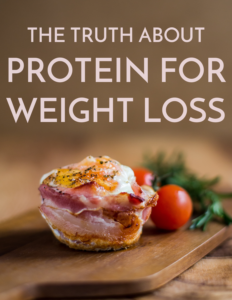
Protein for Weight Loss Checklist
Protein is essential, no matter what your fitness goals are. For weight loss, just staying in shape or to build massive amounts of muscle and 6-pack abs, protein is an absolute necessity. Here are some protein tips to keep in mind for weight loss, and they also support overall health and well-being.
☐ Your body can only process a small amount of protein at a time, roughly 20 grams (g). This means you should spread protein out across all your meals, rather than eating one large amount of protein at any single meal.
☐ There are significantly higher levels of protein in animal-based foods than plant-based foods. A 3 ounce serving of steak delivers anywhere from 14 to 23 g of protein.
☐ It is possible to get all of your protein requirements fulfilled by eating plants only. Lima beans offer 11 to 12 g of protein per cup, and just 2 ounces of nuts get 6 g of protein into your body.
☐ Whey protein powder delivers what is called a “complete protein”. This is because it contains all 9 of the amino acids the human body requires, but cannot produce itself.
☐ Eat protein for breakfast and you may eat fewer calories throughout the day. That fact is supported by a study which showed that consuming 20 g of protein at breakfast led to a drop in how many calories were eaten the rest of the day.
☐ If you eat too much protein, it can be stored as fat.
☐ The Mayo Clinic suggests eating 5 to 6 ounces of protein-rich food each day.
☐ US and UK health officials recommend eating around 0.80 g of protein per kilogram of body weight daily, or roughly 0.35 grams per pound.
☐ Many global health organizations agree that eating protein that equals 15% to 25% of your daily calories is a healthy move.
☐ Eat solid protein food sources 1 to 2 hours before you work out. If you choose a protein shake or powder instead, 30 minutes before you exercise is best.
☐ Estimates vary, but it is generally agreed that eating 10 to 20 g of protein 15 to 30 minutes after you exercise offers the most benefits.
☐ Some healthy sources of protein include fish and seafood (caught in the wild, not farm-raised), nuts and seeds, beans and lean meats, and low-fat dairy and eggs.
☐ A large egg has about 6 g of protein. This is considered by health experts to be a “perfect protein”, and is one reason why eggs are considered superfoods.
sponsored ads
**********************************************************************************
***********************************************************************